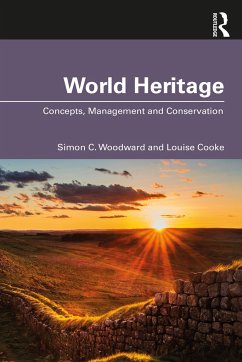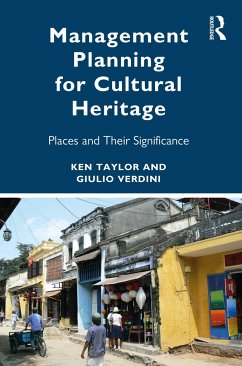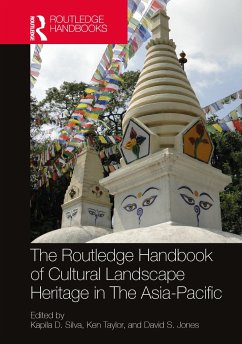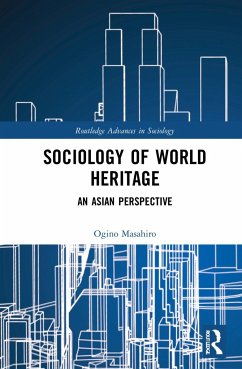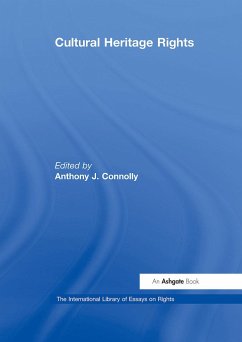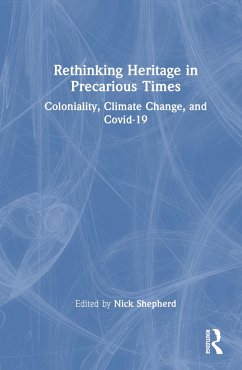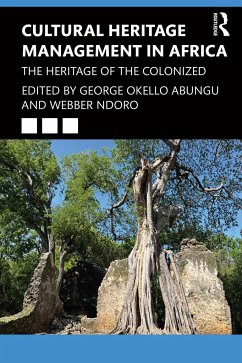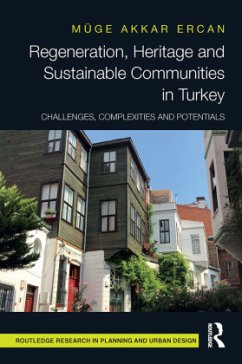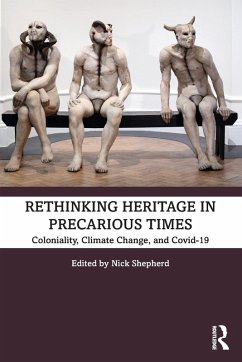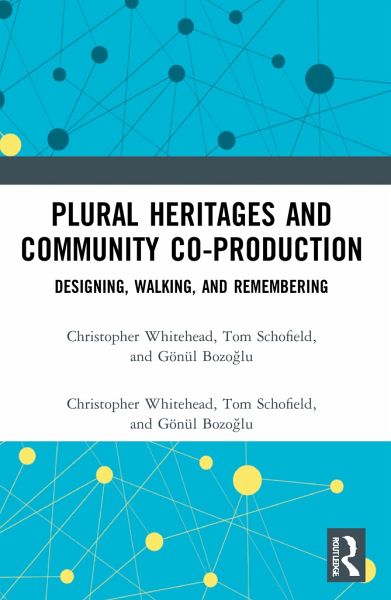
Plural Heritages and Community Co-production
Designing, Walking, and Remembering
Versandkostenfrei!
Versandfertig in 6-10 Tagen
43,99 €
inkl. MwSt.
Weitere Ausgaben:

PAYBACK Punkte
22 °P sammeln!
Plural Heritages and Community Co-production is a landmark contribution on the nature and plurality of heritages and how they can be creatively and ethically presented in urban space.Providing an overview of the concept of plural heritages, this book explores the theory, politics, and practice of community co-production as they intersect with currents in critical heritage thinking, walking as ethnography, and digital design methods. Told through a central case study in Istanbul, Turkey, this volume aligns with cultural and political imperatives to consider the plural values, meanings, affects,...
Plural Heritages and Community Co-production is a landmark contribution on the nature and plurality of heritages and how they can be creatively and ethically presented in urban space.
Providing an overview of the concept of plural heritages, this book explores the theory, politics, and practice of community co-production as they intersect with currents in critical heritage thinking, walking as ethnography, and digital design methods. Told through a central case study in Istanbul, Turkey, this volume aligns with cultural and political imperatives to consider the plural values, meanings, affects, and relativities of heritage sites for the multiple communities who live - or, as for diaspora and displaced groups, have lived - with them. It suggests a range of methods for locating and valorising alternative perspectives to those centrally deployed through museums or other institutions, such as UNESCO World Heritage listing, while also exploring the complexities of the past in the present and the ontology of heritage.
Plural Heritages and Community Co-production will be of great interest to researchers, academics, postgraduate students in the fields of heritage and memory studies, museum studies, history, geography, cultural studies, sociology, anthropology, and politics. The book will also be of interest to heritage professionals, policy makers, and site managers involved in community engagement and participation.
Providing an overview of the concept of plural heritages, this book explores the theory, politics, and practice of community co-production as they intersect with currents in critical heritage thinking, walking as ethnography, and digital design methods. Told through a central case study in Istanbul, Turkey, this volume aligns with cultural and political imperatives to consider the plural values, meanings, affects, and relativities of heritage sites for the multiple communities who live - or, as for diaspora and displaced groups, have lived - with them. It suggests a range of methods for locating and valorising alternative perspectives to those centrally deployed through museums or other institutions, such as UNESCO World Heritage listing, while also exploring the complexities of the past in the present and the ontology of heritage.
Plural Heritages and Community Co-production will be of great interest to researchers, academics, postgraduate students in the fields of heritage and memory studies, museum studies, history, geography, cultural studies, sociology, anthropology, and politics. The book will also be of interest to heritage professionals, policy makers, and site managers involved in community engagement and participation.






